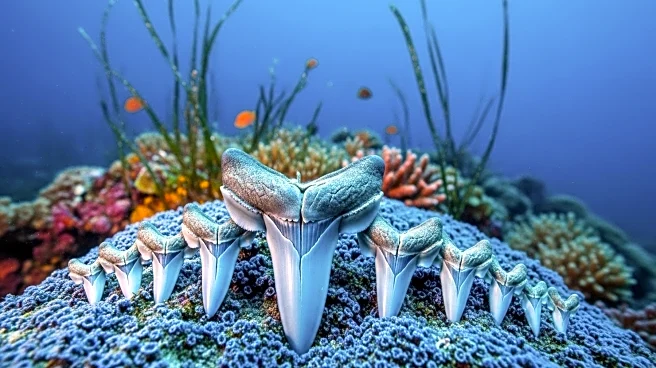What's Happening?
A new study has revealed that ocean acidification could significantly damage shark teeth, potentially affecting their ability to feed efficiently. The research involved placing shark teeth in artificial seawater tanks with varying pH levels, simulating current and projected ocean conditions. Results showed that teeth exposed to more acidic conditions suffered increased root corrosion and altered serration. This damage could impact shark populations and marine ecosystem stability, as sharks play a crucial role as apex predators. The study highlights the broader implications of ocean acidification, which is driven by increased carbon dioxide absorption.
Why It's Important?
The findings underscore the potential ecological consequences of ocean acidification, which could disrupt marine food chains and biodiversity. Sharks are vital to maintaining the balance of marine ecosystems, and compromised feeding abilities could lead to population declines. This research adds to the growing body of evidence on the negative impacts of acidification on marine life, including corals and shellfish. Addressing human-caused CO2 emissions is essential to mitigate these effects and preserve marine biodiversity. The study also suggests that sharks may adapt by increasing tooth replacements, but the long-term effectiveness of such adaptations remains uncertain.
What's Next?
Further research is needed to explore the functional impact of damaged shark teeth on their feeding capabilities. Scientists aim to understand whether corroded teeth can still effectively cut or puncture prey. Additionally, studies may investigate the potential for sharks to adapt to changing ocean conditions through increased tooth replacement or repair mechanisms. Conservation efforts focused on reducing CO2 emissions will be crucial in mitigating the effects of ocean acidification on marine life.









